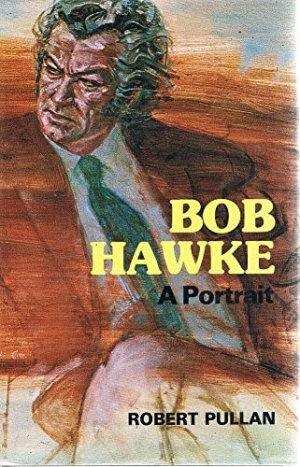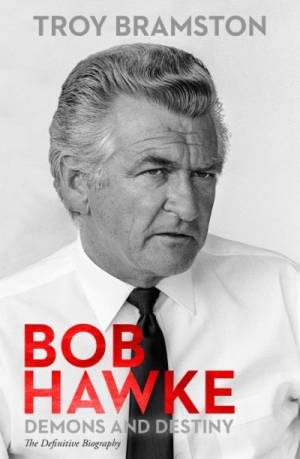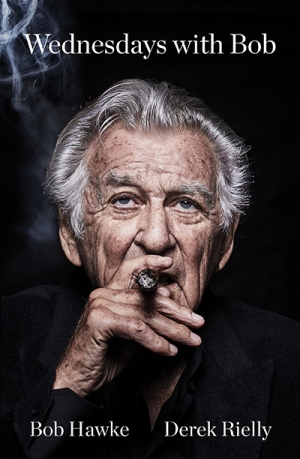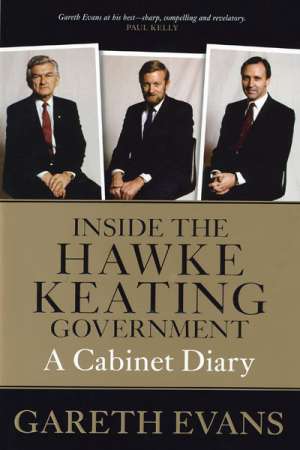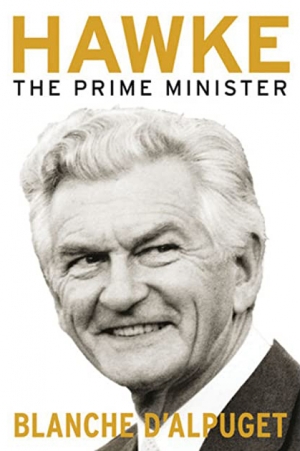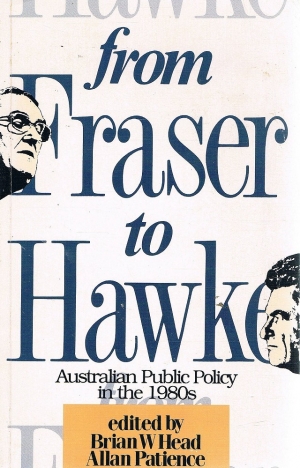Bob Hawke
Don Grant reviews 'Bob Hawke: A portrait' by Robert Pullan and 'Hawke: The definitive biography' by John Hurst
Success may not always have come easy to Robert James Lee Hawke, but it has come often. In 1969 he became President of the ACTU without ever having been a shop steward or a union organiser or secretary; he had never taken part in or led a strike. His experience at grass roots or branch level in the ALP had not been extensive when he was elected Federal President of the party in 1973. Now, untested in parliament and government, his jaw is firmly pointed towards achieving what has always been his ultimate ambition – the prime ministership.
... (read more)Patrick Mullins reviews 'Bob Hawke: Demons and destiny' by Troy Bramston
Curators at old Parliament House – now known as the Museum for Australian Democracy – have for many years maintained the prime minister’s suite much as it was when Bob Hawke vacated it in 1988. Visitors can gaze at a reproduction of the Arthur Boyd painting that hung opposite Hawke’s desk, gawk at the enormous, faux-timber panelled telephone Hawke used, and cast a wry eye over the prime ministerial bathroom, where curators have laid on the vanity toiletries and accoutrements belonging to the office’s last occupant: a box of contact lenses, a pair of black shoelaces, and a tube of hair dye.
... (read more)Richard Walsh reviews 'Wednesdays with Bob' by Bob Hawke and Derek Rielly
This is a book with a strange genesis. Its author, Derek Rielly, explains that he confessed to an agent one night that he’d always wanted to meet Bob Hawke. Her response was: ‘I know a publisher who loves Bob. Get me a proposal.’ In order to obtain Bob’s cooperation, Rielly had first to win over Blanche d’Alpuget and ...
... (read more)David Day reviews 'Inside the Hawke–Keating Government' by Gareth Evans
Gough Whitlam was fond of replying to requests for interviews from historians by saying that all the answers could be found in the archives. ‘Go to the documents, comrade’, was his refrain. However, official documents rarely tell the whole story, particularly those from the modern era, whose authors are conscious that their words could so easily be exposed to public scrutiny. In particular, they are usually bereft of the innermost thoughts and motivations of the politicians and public servants. By contrast, politicians’ diaries can be goldmines. Written contemporaneously, an unguarded diary entry can transform our understanding of people and events.
... (read more)Bruce Grant reviews 'Hawke: The prime minister' by Blanche d’Alpuget
Needless to say, yet needing to be said, Australia’s twenty-third prime minister, R.J.L. Hawke, emerges from this interesting, sometimes engrossing yet disconcerting book smelling like roses. When MUP decided to publish, it must have seemed like a good idea. Deployed on television, Bob and Blanche were a marketing dream. But the result has a fatal flaw; it neither enlarges Hawke as a political leader nor advances d’Alpuget as a writer.
... (read more)Judith Brett reviews 'From Fraser to Hawke: Australian Public Policies in the 1980s' by Brian Head and Allan Patience and 'The Hawke–Keating Hijack: the ALP in Transition' by Dean Jaensch
The debate about the costs and limitations of power is as old as the ALP, but it has been given new urgency by the changes in the Party since Labor won government in 1983. So far this year, three books have been published which deal wholly or in part with the Hawke government’s relationship with the traditions of the Australian Labor Party: Carol Johnson’s The Labor Legacy, Graham Maddox’s The Hawke Government and Labor Tradition and now Dean Jaensch’s The Hawke–Keating Hijack: The ALP in transition.
... (read more)George Munster reviews 'The Things We Did Last Summer' by Bob Ellis, '31 Days to Power' by Robert Haupt with Michelle Grattan, 'Time of Testing' by Craig McGregor, and 'Gamble for Power' by Anne Summers
‘In fifty years’ time,’ Robert Haupt and Michelle Grattan write in 31 Days to Power. ‘historians will look at the 1983 elections, see that inflation, unemployment and interest rates were at high levels compared to the past, and conclude that Fraser could never have won’.
... (read more)
